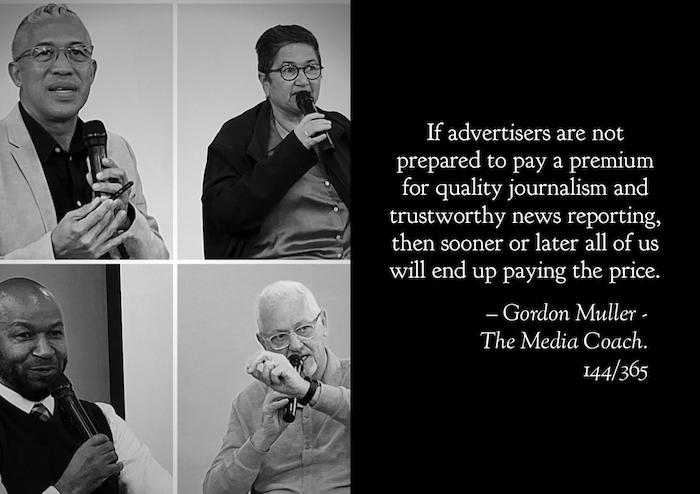Lamentable it may be, but the reported closure of the Media24 titles Rapport, Beeld, City Press, Daily Sun and Rapport (reported by Jeremy Maggs on Moneyweb on Thursday)* will have little impact on the advertising industry.
Nielsen reports that newspaper advertising accounts for about 6% of adspend in traditional media. Excluding community papers, weekly and daily newspapers represent about half this investment.
When we factor in the reality that at least 30% of total adspend goes to digital media, it’s easy to see why the closure a few newspaper titles won’t even create a ripple in the advertising industry.
There has been a 90% decline in the circulation of these titles since the glory days of the 2010 World Cup. A decline matched only by the decline in the fortunes of Bafana Bafana themselves.
From an advertising perspective, it is a tale full of sound and fury, but ultimately, signifying nothing.
From a societal and cultural perspective though, it really is alarming.
Newspapers have played a significant role in building a democratic South Africa. The recent ‘mock closure’ of the Daily Maverick is a powerful reminder of the importance of having a vibrant and free press.
To have gone from an age of redacted newspaper front pages to having no front pages at all, is deeply distressing and to imagine that local newspapers, in their current form, would fill this gap is naïve.
It’s a much-touted opinion that young people don’t read today. But a recent report published by the National Literacy Trust in the UK offers a different perspective. Only 40% young people in the UK enjoy writing and only one in five write for pleasure on a daily basis.
It is the emojification of communication that is the real threat to quality journalism. It is dumbing down that is the real threat to democratic discourse.
Regarding Beeld and Rapport specifically, one has to pose the question why the Afrikaans language and culture – which has undergone a renaissance in music, theatre and the arts – cannot find a space for the written word in newsprint.
The problem is not that young people don’t want to read but, like the UK, that young people don’t want to write.
We need more quality journalism, not just more readers. If you write it, they will come.
Pic form AMASA
One shining light in the Afrikaans news reporting sector is the re-emergence of Vrye Weekblad as a respected news and social commentator. Wouldn’t it be ironic if the bad boy of verligte journalism in the 80s, Max du Preez emerged as Last Man Standing in the Afrikaans publishing sector.
Wragtig, kerels. It’s enough to make Marius Jooste make a comeback.
*Meanwhile, Media24 chief Ichmet Davidson told BusinessLIVE, “I’ve not made any announcements and am considering a host of options as [far as] the business goes. We are looking at the entire business.”















